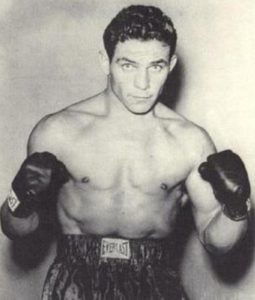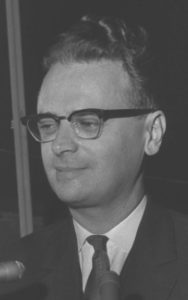Canadian-Israeli Mega Donors
Meir Marcel Abramovici (1920-2020) was born to a traditional Jewish family in Romania and became a leather tanner like his father. After three years in Nazi labour camps, he escaped to Turkey, and then to Israel, where he fought in the War of Independence. A few years later, he moved to Canada and got a job working at a Quebec tannery, where his boss told him to change his last name to “Adams”. Once he saved a little bit of money he began investing in real estate. In 1958, Adams became a full-time real estate investor and founded Iberville Developments. Today, the company has over 100 shopping centres, residential buildings, and industrial properties across Canada and the US. Before he passed away, Adams was the world’s second-oldest billionaire, and a noted philanthropist. He established Tel Aviv University’s Adams Institute for Business Management Information Systems and the Adams Super Center for Brain Research.
His son Sylvan Adams (b. 1958) took over Iberville Developments in 1990, and served as its CEO for the next 25 years, until making aliyah and settling in Tel Aviv. Meanwhile, he took up professional cycling and in 2017 won the World Masters Championship in England. The following year, he opened the first indoor velodrome in Israel (and the entire Middle East). He gave 80 million shekels to bring the 2018 Giro d’Italia, one of cycling’s prestigious Grand Tours, to Israel, marking the first time that the tournament was held outside Europe. Adams has signed the Giving Pledge and is a huge philanthropist. He donated 100 million shekels to Tel Aviv’s Ichilov Medical Center in 2019, and financed a new children’s hospital at Wolfson Medical Center in Holon. Earlier this week, he announced $100 million to Ben-Gurion University in the Negev to “rebuild and strengthen” the south of Israel following the October 7 massacre. His foundation provides doctoral scholarships at the Israel Academy of Sciences and Humanities, and funds the Nefesh b’Nefesh “Bonei Zion Prize” for immigrants to Israel who make a profound impact on the country. He also donated $5 million to SpaceIL to develop Israel’s nascent space program and put an Israeli spacecraft on the moon. Adams is still cycling, and earlier this year won the UCI Cycling World Championships in his age category.
Chanukah Begins Tonight – Chag Sameach!
Chanukah & the Light of Creation
Words of the Week
We must support the gentile poor along with the Jewish poor, and visit the gentile sick along with the Jewish sick, and bury the gentile poor along with the Jewish poor, for the sake of peace.
– Talmud, Gittin 61a



 Ferenc Hoffman (1924-2005) was born in Budapest, Hungary to a secular Jewish family. He loved to write from a young age, and won a prize for a novel he wrote while still in high school. He was also an avid chess player. During World War II, he was first expelled from university before being imprisoned at a number of concentration camps, ending up in the Sobibor death camp. One of the ways he survived is by challenging the guards to chess matches. Another is by maintaining his sense of humour. After the Holocaust, he went by the name Franz Kishunt, studying sculpting and art history while also writing satire. In 1949, he escaped communist Hungary and made aliyah, becoming “Ephraim Kishon”. He was a passionate Zionist and would staunchly defend the State of Israel for the rest of his life—often being disparaged by the media for his hardline views. Within two years of settling in the Holy Land, Kishon was fluent in Hebrew (he literally hand-copied an entire dictionary) and began writing satire for a number of papers. His most famous column was Had Gadya in the Ma’ariv newspaper, which he wrote almost daily for over 30 years. Kishon soon became Israel’s greatest and most famous humourist. He also wrote popular plays, an opera, and books that have been translated into some 40 languages, including So Sorry We Won! about the Six-Day War. In the 1960s, Kishon entered the world of film. He wrote, directed, and produced five movies, the first being the critically-acclaimed Sallah Shabbati, highlighting the struggle of Mizrachi Jewish refugees to Israel. The film won a Golden Globe and was nominated for an Oscar, making Kishon the first Israeli with that distinction. (The film also launched the international career of Israeli actor Chaim Topol, most famous for portraying Tevye in Fiddler on the Roof.) Kishon’s fourth film, The Policeman, also won a Golden Globe and was nominated for an Oscar. Not surprisingly, Kishon has been credited with opening up Israeli cinema to the world, and paving the path to Hollywood for Israelis. He won a long list of awards, including the Bialik Prize and the Israel Prize. He was a billiards champ, a pioneer in the field of computer chess, and even created a board game (“Havila Higiya”) once popular in Israel. Kishon has been called the “father of Israeli satire”, and inspired an entire generation of Israeli humourists.
Ferenc Hoffman (1924-2005) was born in Budapest, Hungary to a secular Jewish family. He loved to write from a young age, and won a prize for a novel he wrote while still in high school. He was also an avid chess player. During World War II, he was first expelled from university before being imprisoned at a number of concentration camps, ending up in the Sobibor death camp. One of the ways he survived is by challenging the guards to chess matches. Another is by maintaining his sense of humour. After the Holocaust, he went by the name Franz Kishunt, studying sculpting and art history while also writing satire. In 1949, he escaped communist Hungary and made aliyah, becoming “Ephraim Kishon”. He was a passionate Zionist and would staunchly defend the State of Israel for the rest of his life—often being disparaged by the media for his hardline views. Within two years of settling in the Holy Land, Kishon was fluent in Hebrew (he literally hand-copied an entire dictionary) and began writing satire for a number of papers. His most famous column was Had Gadya in the Ma’ariv newspaper, which he wrote almost daily for over 30 years. Kishon soon became Israel’s greatest and most famous humourist. He also wrote popular plays, an opera, and books that have been translated into some 40 languages, including So Sorry We Won! about the Six-Day War. In the 1960s, Kishon entered the world of film. He wrote, directed, and produced five movies, the first being the critically-acclaimed Sallah Shabbati, highlighting the struggle of Mizrachi Jewish refugees to Israel. The film won a Golden Globe and was nominated for an Oscar, making Kishon the first Israeli with that distinction. (The film also launched the international career of Israeli actor Chaim Topol, most famous for portraying Tevye in Fiddler on the Roof.) Kishon’s fourth film, The Policeman, also won a Golden Globe and was nominated for an Oscar. Not surprisingly, Kishon has been credited with opening up Israeli cinema to the world, and paving the path to Hollywood for Israelis. He won a long list of awards, including the Bialik Prize and the Israel Prize. He was a billiards champ, a pioneer in the field of computer chess, and even created a board game (“Havila Higiya”) once popular in Israel. Kishon has been called the “father of Israeli satire”, and inspired an entire generation of Israeli humourists.